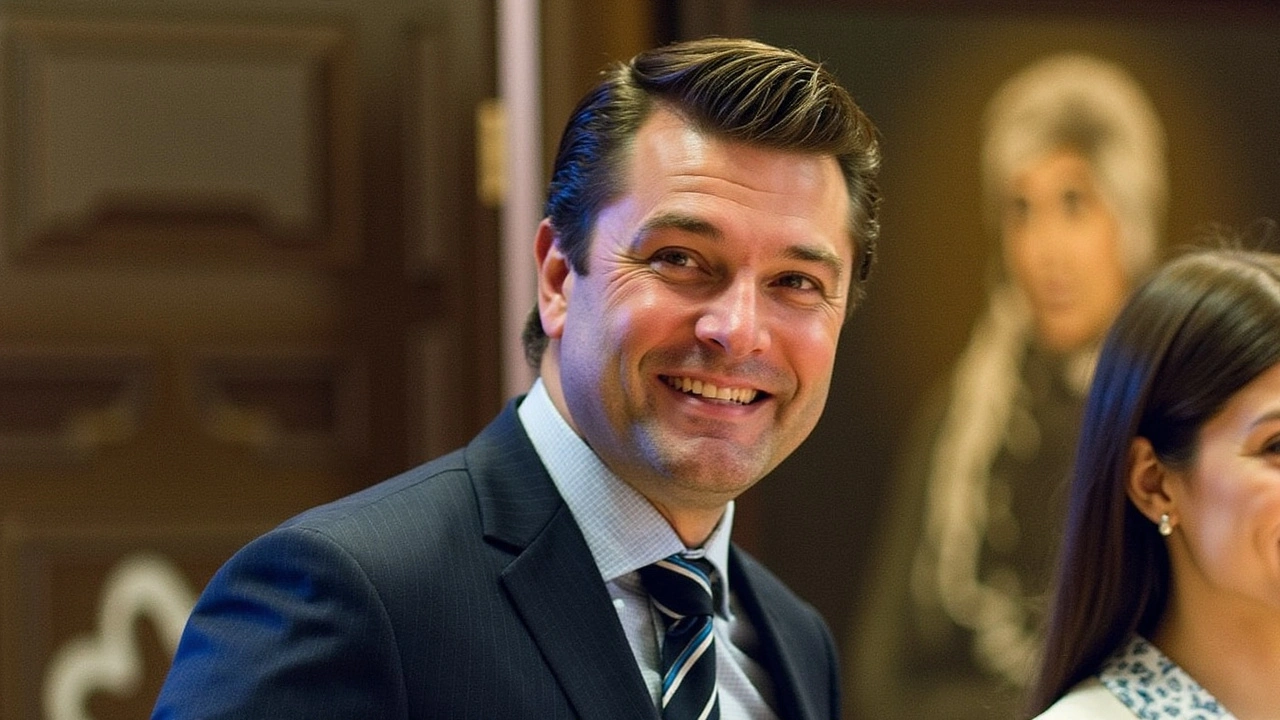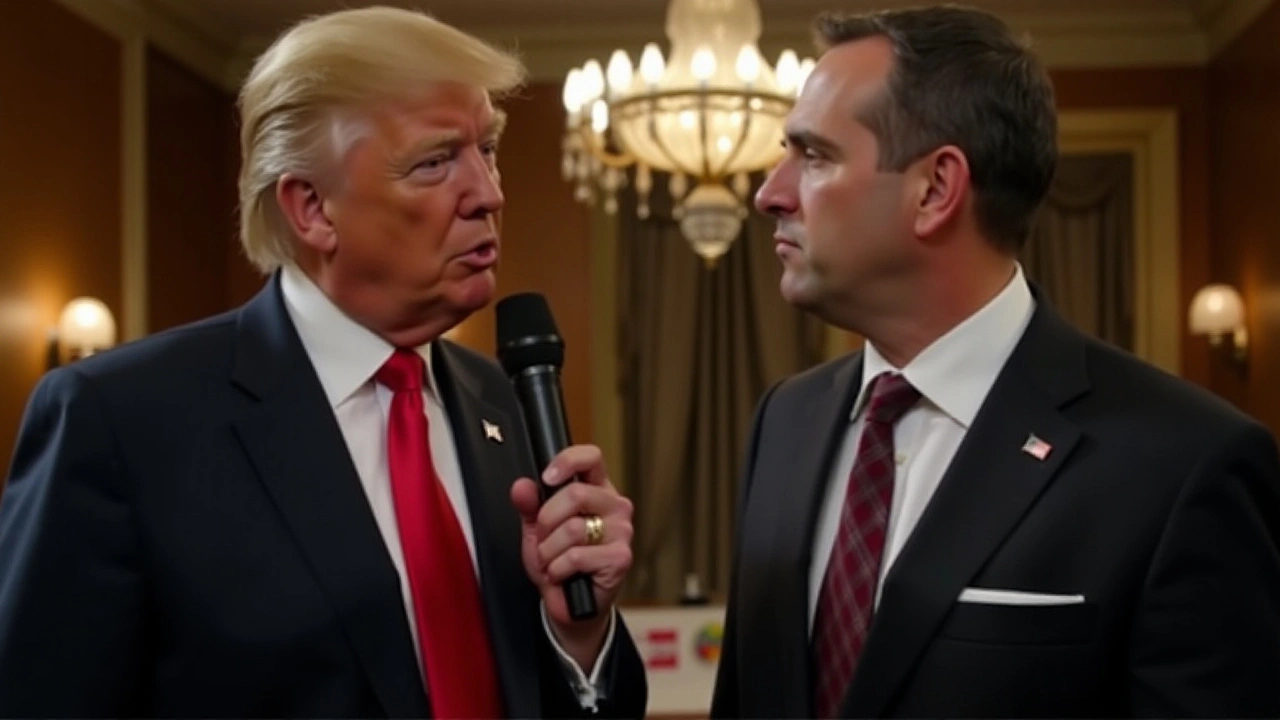Trump's Latest Appointment Raises Eyebrows in Political Circles
In a move that has sent shockwaves through the political landscape, President Donald Trump has named Pete Hegseth as the new Defense Secretary. Hegseth, a familiar face to viewers of Fox News due to his role as a conservative host, is known for his fervent support of Trump. However, his appointment has ignited a firestorm of debate regarding whether his background equips him to steer one of the most critical departments in the United States government. Unlike many predecessors who possessed extensive experience in defense or diplomatic circles, Hegseth's primary credentials include his former military service and media career rather than high-stakes defense management. This lack of traditional pedigree for the role is seen by many as a potential liability, casting a spotlight on Trump's approach to choosing candidates who align more closely with his personal loyalties than established criteria of qualification.
Hegseth's Military Service: A Closer Look
To evaluate the implications of Pete Hegseth's appointment, it's essential to look closer at his military service history. Hegseth served in the US Army National Guard and completed deployments in Iraq and Afghanistan. His career culminated with the rank of Major, showcasing a commendable but not extraordinarily high level of military experience. While his service is undeniably patriotic, the key issue is whether it furnishes him with the strategic and administrative acumen necessary for the role of Defense Secretary. Managing the Pentagon involves intricate knowledge of nuanced defense policies, security strategies, and large-scale coordination, demands that require extensive preparation and insight—traits that traditionally take years, if not decades, to hone in senior military ranks or through gradual ascension in defense-related roles.
Concerns Over Hegseth's Policy Background
As a public commentator, Pete Hegseth has not shied away from controversy. His track record at Fox News reveals a propensity for making bold and sometimes polarizing statements. Detractors argue that he has not demonstrated a deep mastery of the complex intricacies that underpin global defense policy, especially regarding international alliances, sensitive intelligence operations, or evolving warfare technology. These components form the backbone of what a Defense Secretary must navigate daily. Critics fear that Hegseth's views, marked by a more aggressive and less diplomatic stance, could complicate already tense international relations. There is anxiety around his capability to prioritize strategic imperatives over ideological positions, a necessary skill when ensuring the protection of national interests in a polarized and rapidly shifting global landscape.
The Political Implications of Trump's Decision
This appointment is more than a mere reshuffle—it signals a pattern in Trump's administration of positioning loyalists rather than individuals with extensive, relevant experience. As Trump prepares for the 2024 election, such moves suggest an administration looking to consolidate influence and ensure key positions are held by those with steadfast allegiance. This raises questions about the ability of seasoned military leaders to provide unbiased counsel, and whether more experienced voices will find their advice sidelined in favor of directives that align closely with the president's own views. Trump's decision to appoint Hegseth is, therefore, emblematic of a broader strategic gamble that prioritizes trust over traditional expertise.

The Response from Washington and Beyond
The reactions from Capitol Hill to Trump's recent appointment have been divided yet vocal. Democrats have been quick to criticize the decision, arguing that it reveals Trump's disregard for the necessary prerequisites for such a consequential role. They posit that the Defense Secretary should possess a proven track record in national security to effectively manage threats and emergencies. Some Republicans, too, while usually reticent to challenge the president, have expressed caution, concerned about the potential fallout from an administration so heavily reliant on loyalty rather than merit in positions critical to national security. The unease reflects broader discontent about how such choices might impact not only domestic politics but also US relations on the world stage.
What Comes Next for the Pentagon?
As Pete Hegseth settles into his new role, the questions surrounding his appointment will persist. The Pentagon, a bastion of national defense and military decision-making, must adapt to a leader whose experience is largely outside the typical framework. How Hegseth bridges the gap between media roles and the demands of managing a sprawling bureaucracy like the Department of Defense will be closely watched. His decisions will be dissected for alignment with Trump's agenda but also for evidence of independent thinking that may reassure those concerned about his preparedness. It brings a period of uncertainty and adjustment, both internally within the Pentagon's ranks and externally in how defense policy evolves in the coming years.


Mike Malone
The appointment of a media personality to the helm of the nation’s defense establishment invites a rigorous examination of the qualifications traditionally deemed indispensable for such a pivotal role. Historically, defense secretaries have emerged from the upper echelons of the military hierarchy or have amassed decades of experience within the intricate web of defense policy and diplomatic engagement. Pete Hegseth, while possessing commendable military service, concludes his career at the rank of major, a position that does not ordinarily confer the strategic oversight required to steward the Pentagon. Moreover, his subsequent trajectory into broadcast journalism has endowed him with a platform for opinion rather than a laboratory for policy formulation. The responsibilities embedded within the Department of Defense encompass the coordination of multi‑theater operations, the stewardship of a multibillion‑dollar budget, and the navigation of complex alliances whose stability underpins global security. Possessing an intimate familiarity with these dimensions typically necessitates a prolonged apprenticeship under seasoned defense leaders. In the absence of such experiential depth, the risk emerges that ideological predilections may eclipse pragmatic assessments. Furthermore, the intricate balance between civilian oversight and military expertise is predicated upon mutual respect and an appreciation of institutional knowledge. The current appointment appears to tilt that balance toward loyalty, thereby raising concerns about the marginalization of dissenting professional counsel. While patriotic fervor and loyalty to the President are valuable attributes, they are insufficient substitutes for the comprehensive skill set traditionally cultivated over a lifetime of service. The ramifications of this decision will be manifest not only within the corridors of the Pentagon but also in the United States’ diplomatic posture on the world stage. Should the new secretary prioritize partisan narratives over strategic imperatives, the United States may encounter diminished credibility among allies who rely on the predictability of its defense policy. Ultimately, the efficacy of this appointment will be measured by the ability of the officeholder to bridge the chasm between media savvy and defense acumen, a challenge that remains to be observed.